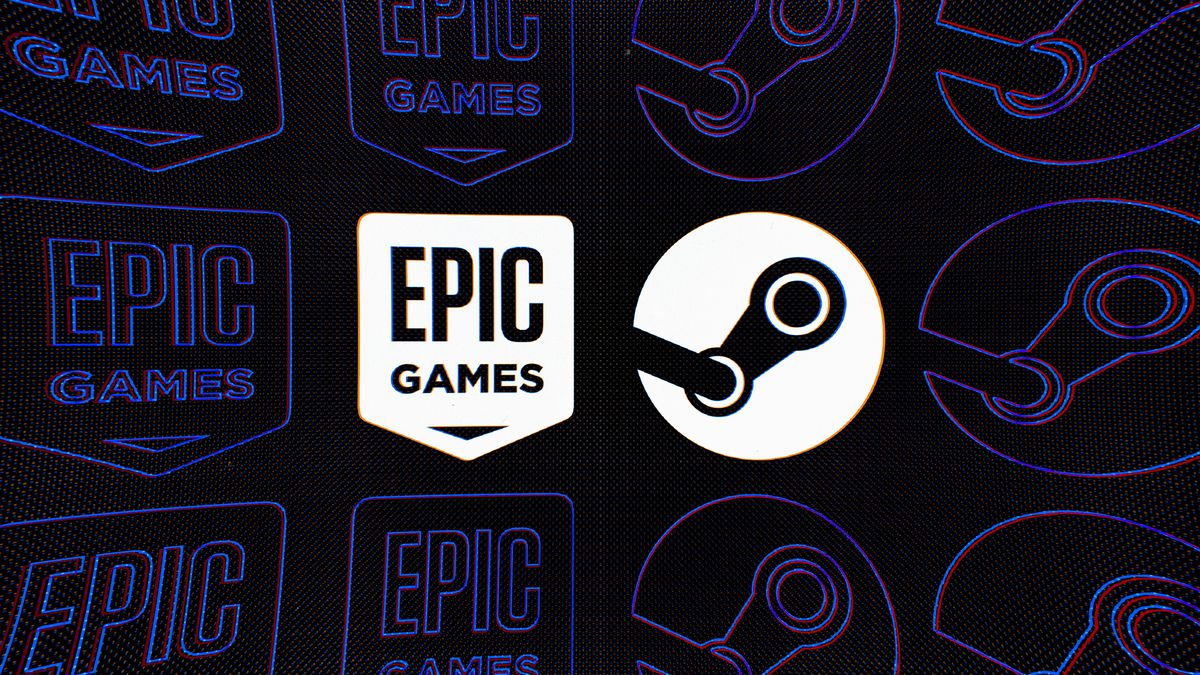Originally launched in September 2003 to provide automatic updates to Valve’s games, Steam eventually evolved to include games from third-party publishers (2005), offering digital rights management; social networking services and community-based features, such as Steam Workshop (2011); game discoverability features, such as Steam Greenlight (2012), Discovery (2014) and Steam Labs (2019). Since 2005, the number of games in Steam exponentially increased by 2019, with over a billion registered user accounts.
Similarly, Epic Games started out as a video game development company. Shortly after the success of the game Fornite, followed the launch of the Epic Games Store (or Epic): a digital storefront like Steam, aiming to challenge the latter.
Although there are other digital distribution platforms out there like GOG, Itch.io, Origin, Battle.net, and Uplay to name a few, and with a ton of differences in each platform, this article will focus on my personal viewpoint on the battle between Steam and Epic.
UI/UX
Design-wise, Steam’s interface and features are pretty much outdated compared to Epic’s sleek and minimal user interface. With Epic’s arrival at the scene, it’s about time Steam got its long-awaited makeover.
On the other hand, no matter how cluttered Steam’s interface looks overall, Steam still delivers with content and accessibility, especially now with the latest open beta for the new Steam library starting on the 17th of September.
Quantity vs Quality
Over the years, the number of games in the Steam store has increased exponentially, especially after the removal of the Steam Greenlight, a service within Steam in which users vote on independently-developed games to determine which titles will be published on the marketplace. By replacing Greenlight with Direct, indie game developers can now simply pay Steam a fee to ensure that their games are added into the marketplace. And with a more hands-off approach to Steam game curation, Steam, in a way, deliberately welcomed NSFW games into their platform.
Without a stoplight (or the Greenlight) to moderate the games being published on Steam and with this hands-off approach on game curation, you can just imagine how many bloatware games you would find nowadays in Steam’s marketplace.
Epic Games Store on the other hand, promises to abide to a quality standard and to stay away from crappy games.
General Features
While Epic Games Store is continually being developed for more features including Wishlists, Newsfeed and Follow improvements, Shopping Cart, Refunds, Gifting, Achievements and User Reviews, Steam already has those. As one of the pioneers in digital distribution, Steam is way ahead of the competitor platform that Epic can only improve what Steam currently has or find a way to offer other features that Steam is currently lacking.
Aside from these general features, Steam also has a wide range of community features including Forums and player-created Guides; Screenshot, Video and Artwork sharing; Broadcasting; Workshops or community-generated mods; Family Sharing, and; Game Curations, just to name a few.
Freebies and Exclusives
The Epic Games Store currently hosts a number of weekly freebies and exclusives. Although Steam also has Free Weekend games, Epic’s freebies are yours to keep assuming you claim it within the specified time. Most of the games that went free though have already been included in past bundles or have been free on different platforms, so in a way, it doesn’t necessarily add value to its platform.
Exclusives aren’t really much of a problem for Steam too (at least, not at the moment)– Battle.net offers games exclusive only to them like Diablo series and Overwatch, and Origin also offers exclusives including the more recent Need for Speed and Mass Effect games. At one point in time, Hades was supposedly an Epic Games Store exclusive, but has recently been added to Steam as well.
Takeaways
Shortly after its release, I bought the game Elder Scrolls V: Skyrim at our local game distribution store. Upon installation, I was asked to have a Steam account. That was about 8 years ago.
In a span of years, I have already invested a lot money and time into my Steam account by expanding my game library, and completing achievements and showcasing them on my profile (but mostly just by expanding my game library).
As a gamer, I don’t care much about Epic Games Store being a competition with Steam. In fact, with this kind of competition, it would only (possibly) force Steam to make game-changing updates to retain their users. But if devs continue to choose Epic over Steam because of the lower cut on revenue that could eventually decrease the number of good games on Steam, by the time that happens, it wouldn’t be farfetched for me to use Epic (though not entirely switch).
Steam has been at this business for quite some time, while Epic is only at the beginning. Although there is data and statistics that Epic could use to match Steam and eventually surpass them, I would only probably switch to Epic if my Steam games (except Steam exclusives, if any) would somehow transfer over to, or if the achievements I have earned over the years would also somehow be reproduced on Epic, but that probably won’t happen.
Not on Steam or Epic, at the least. But this is for a different story.


